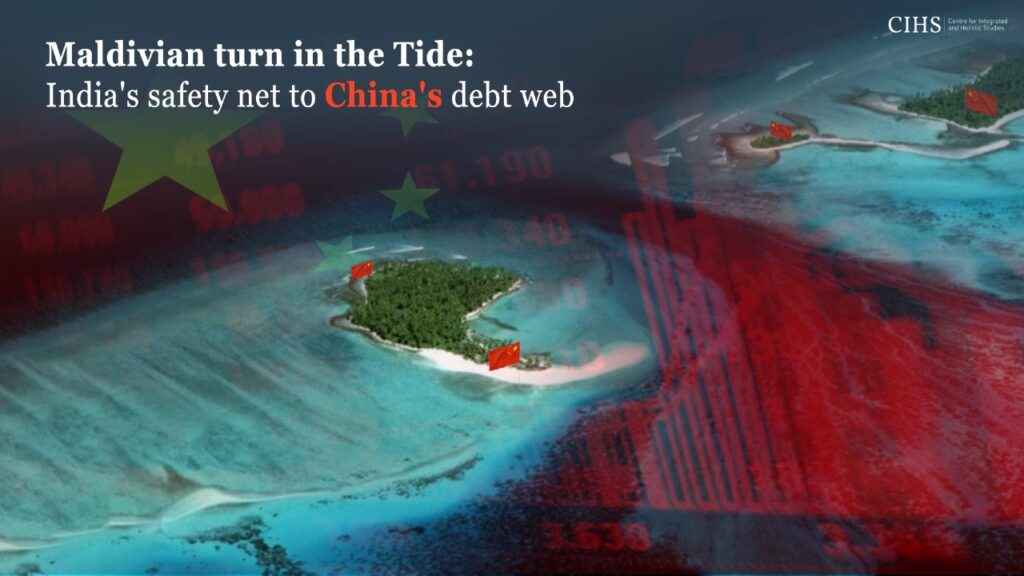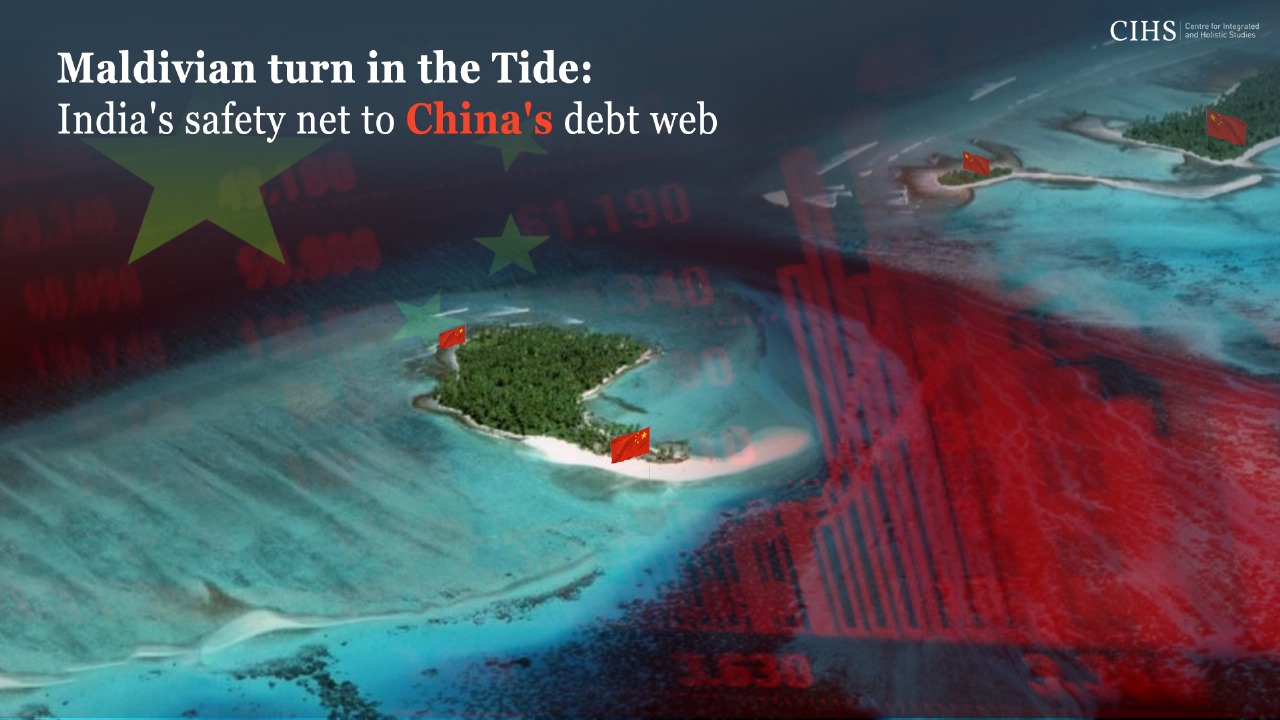
Maldivian turn in the Tide: India\’s safety net to China\’s debt web
Shift in island nation’s strategic relations to curry favour with Chinese Communist Party bosses is fraught with danger of instability
Rahul Pawa
Maldives that has historically been a significant beneficiary of Bharat\’s Neighbourhood First policy and a proximate maritime neighbour in the Indian Ocean Region, is re-positioning itself from the perspective of defense and security ties with Bharat.
This reassessment is direct consequence of actions taken by newly anointed Maldivian President Mohamed Muizzu, who rose to power advocating an \’India Out\’ campaign.

Influenced by the pro-Chinese Communist Party (CCP) stance of former President Abdulla Yameen, President Muizzu has made a decisive move away from the cooperative relationship his predecessor, Ibrahim Mohamed Solih, maintained with Bharat.
This shift became particularly evident with a statement issued on November 18, in which President Muizzu\’s office formally requested withdrawal of Indian military personnel from Maldives. This request, signifying a departure from longstanding military cooperation between the two nations was earlier presented during a meeting with India’s Earth Sciences Minister Kiren Rijiju, who was in attendance at Muizzu’s swearing-in ceremony.
Escalating the situation further, Maldives is now scrutinizing over 100 agreements signed with India during Solih\’s tenure, covering areas of defense and security. Mohamed Firuzul Abdul Khaleel, the undersecretary for Public Policy in Presidential Office, disclosed the stationing of 77 Bharatiya military personnel in Maldives, spanning various military assets covered this scrutiny.
This reevaluation of ties and November 18 announcement underscore a significant geopolitical shift in the region, marking a potential realignment of Maldives\’ foreign policy away from Bharat and marks a tilt towards China.
Maldives\’ strategic pivot towards China, away from its traditional alignment with Bharat, brings a multitude of vulnerabilities and challenges for the island nation as well.
This shift not only strengthens China\’s influence in a region historically under Indian sway but also risks exposing the Maldives to economic and political instability. The alignment with China poses significant risk of ensnaring Maldives in a debt trap, akin to Sri Lanka as in the case of Hambantota Port and other infrastructure projects.
Considering the Maldivian economy\’s heavy reliance on tourism, financial burden of Chinese investments could be unsustainable. Moreover, this shift in foreign policy may lead to internal political strife. Opposition to the \’China-triggered\’ policies and concerns over national sovereignty could ignite domestic unrest, potentially resulting in a divided and unstable political landscape.
On international front, moving away from India might strain the Maldives\’ relationships with other regional powers and Western allies, who view China\’s expanding influence with apprehension. This could lead to lesser foreign aid and support from these nations.
The strategic shift under influence of Chinese Communist Party (CCP) represents significant departure from Maldives\’ historical relationship with India, a partnership that has been a bedrock of stability and support, instrumental in the nation\’s development and security.
India\’s role has been particularly pivotal during times of crisis, such as the 1988 coup attempt, 2014 water crisis and 2004 tsunami, offering a balance of economic assistance, defense cooperation, and diplomatic support.
However, the new trajectory in favour of China opens Maldives to a host of risks that could have far-reaching consequences for its stability and wellbeing. Possible economic dependency on China, with looming threat of a debt trap, poses a significant danger to the Maldivian economy. This shift might not only leads to internal political instability but also exacerbate the nation\’s environmental challenges.
Maldives, already grappling with adverse impact of climate change and rising sea levels, may face further environmental degradation due to large-scale Chinese construction projects. In essence, moving away from India could isolate the Maldives from a historically reliable and benevolent partner, steering it away from the sources of strength and stability that have been crucial for its growth and prosperity.
As President Muizzu seeks to establish new geopolitical alignments, the Maldives navigates towards a precarious future. The allure of Chinese economic support, while tempting, carries substantial risks, including the potential loss of traditional allies and internal political turmoil. This strategic pivot could leave the Maldives in a vulnerable position, both economically and geopolitically, with limited room to manoeuvre in an increasingly complex and competitive international arena.
The future, as it unfolds, is fraught with uncertainty and potential instability for the Maldives as it navigates these significant geopolitical shifts.
(Author is Director – research at New Delhi based non-partisan think tank, Centre for Integrated and Holistic Studies)

